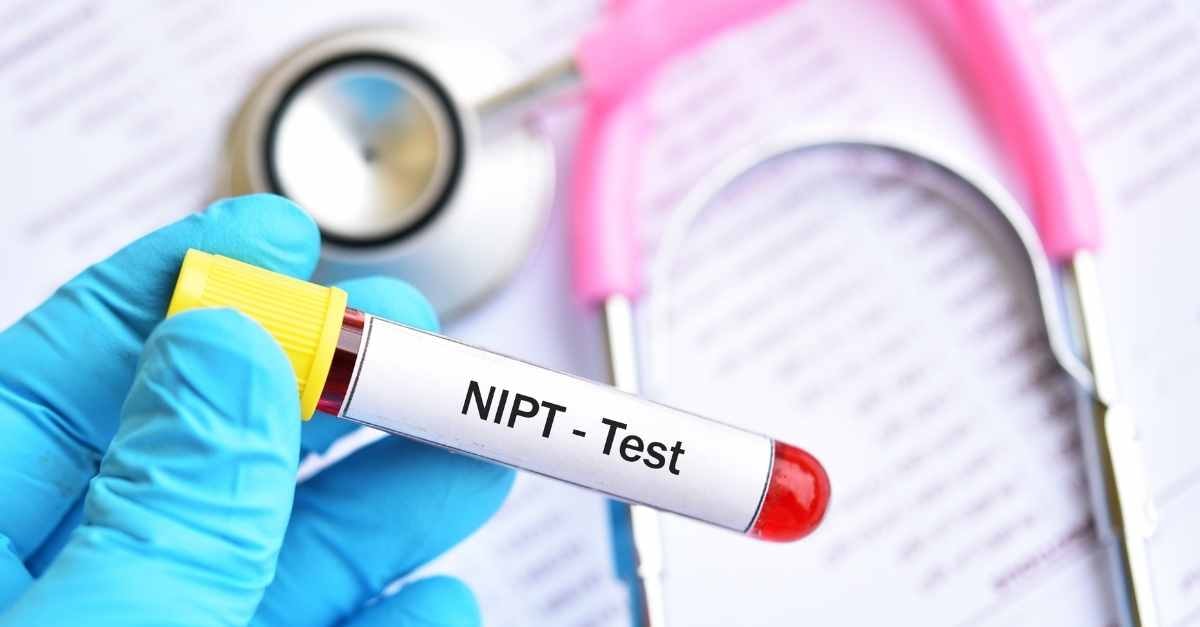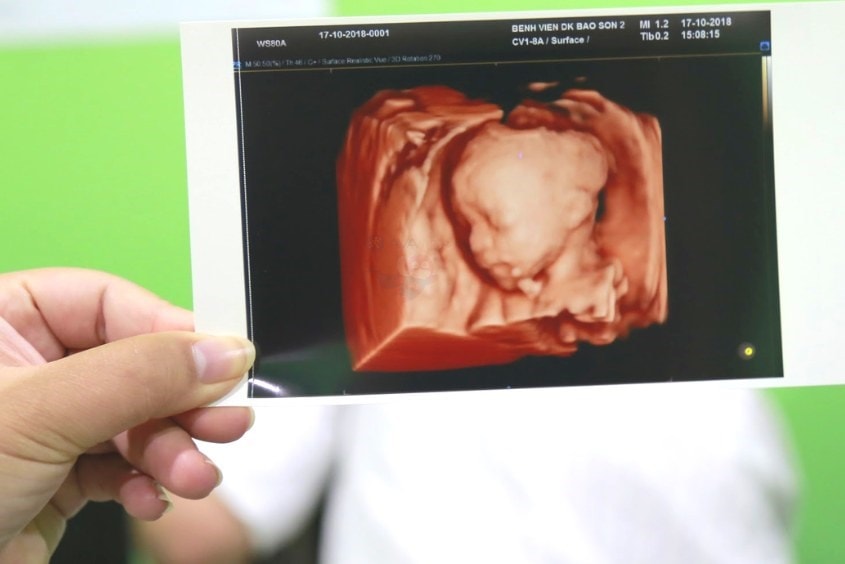10 important prenatal check-up milestones expectant mothers need to remember.
Do you know the 10 important prenatal check-up milestones that every pregnant woman needs to remember? In this article, we will provide detailed guidance on each check-up milestone, helping you easily plan and feel more at ease throughout your pregnancy.
- Why are regular prenatal checkups important?
- 10 important prenatal check-up milestones pregnant women need to remember.
- Weeks 6-8: Confirm pregnancy and initial health check-up
- 2. Weeks 11-13: Fetal Anomaly Screening (Double Test)
- 3. Weeks 16-18: Fetal morphology check
- 4. Weeks 20-22: Detailed morphological ultrasound
- 5. Weeks 24-28: Screening for gestational diabetes
- 6. Weeks 28-32: Monitoring fetal growth
- 7. Weeks 32-34: Assessing fetal position
- 8. Weeks 35-36: Group B Streptococcus test
- 9. Weeks 37-38: Preparing for childbirth
- 10. Weeks 39-40: Monitoring labor
- What should expectant mothers prepare before each prenatal check-up?
- Expert advice
Why are regular prenatal checkups important?
Prenatal checkups are not just about ensuring your baby is healthy; they also help detect potential problems in both mother and baby early on. Statistics show that scheduled prenatal checkups reduce the risk of pregnancy complications by 80%. So, what are the benefits of regular prenatal checkups?

- Monitoring fetal development:Ensure your baby develops properly in terms of weight, height, and organ function.
- Early detection of abnormalities:Issues such as birth defects or the risk of premature birth can be detected through ultrasound and other tests.
- Supporting the health of expectant mothers:Check your blood pressure, blood sugar, and other indicators to prevent preeclampsia or gestational diabetes.
10 important prenatal check-up milestones pregnant women need to remember.
Below is a list of 10 important prenatal check-up milestones, designed to suit both first-time mothers and those with experience. Each milestone includes specific instructions to help you know what to do and how to prepare.
Weeks 6-8: Confirm pregnancy and initial health check-up
This is your first prenatal check-up, usually occurring when you've missed your period by about 2-4 weeks. The doctor will perform an ultrasound to confirm the pregnancy is in the uterus and check the fetal heartbeat.
- Target:Determine pregnancy and rule out ectopic pregnancy.
- Tests that need to be done:Transvaginal ultrasound, blood test (HCG), blood type test.
- Specific actions:Schedule an appointment with a reputable obstetrician, bring your medical records, and note down any symptoms (if any).
Frequently Asked Questions:How can you tell if the pregnancy is in the uterus? A transvaginal ultrasound will provide clear images, helping the doctor determine the location of the pregnancy.
2. Weeks 11-13: Fetal Anomaly Screening (Double Test)

This is a crucial screening test to assess the risk of Down syndrome and other chromosomal abnormalities.
- Target:Measure nuchal translucency, examine nasal bone, and assess biochemical parameters through blood tests.
- Specific actions:Drink plenty of water before your ultrasound and prepare yourself mentally for the screening results.
Comparing Double Test and Triple Test:
| Criteria | Double Test | Triple Test |
|---|---|---|
| Execution time | Weeks 11-13 | Weeks 15-20 |
| Purpose | Down syndrome screening, Edwards | Further screening for neural tube defects. |
| Accuracy | 85-90% | 80-85% |
3. Weeks 16-18: Fetal morphology check
At this stage, you will have an ultrasound to check your baby's organs such as the heart, lungs, and limbs.

- Target:Detection of congenital defects in major organs.
- Specific actions:Choose an experienced ultrasound doctor and write down any questions you have to discuss with them.
4. Weeks 20-22: Detailed morphological ultrasound
This is the most important ultrasound during pregnancy, helping to comprehensively assess the fetus's development.

- Target:Check the baby's brain, spine, heart, kidneys, and limbs.
- Tests that need to be done:Triple Test (if you haven't already done the Double Test).
- Specific actions:Schedule a 4D ultrasound if you want to see your baby more clearly.
Expert tip:Bring a family member along to share the joy of seeing your baby through the ultrasound.
5. Weeks 24-28: Screening for gestational diabetes
During this stage, pregnant women need to have a glucose tolerance test to detect gestational diabetes.
- Target:Maintaining stable blood sugar levels reduces the risk of complications for both mother and baby.
- Specific actions:Fast before the test, following your doctor's instructions.
6. Weeks 28-32: Monitoring fetal growth
The fetus is developing rapidly at this stage, so ultrasounds are necessary to check its weight and position.
- Target:Assess the baby's development and detect the risk of premature birth.
- Specific actions:Get vaccinated against tetanus (if you haven't already).
7. Weeks 32-34: Assessing fetal position
The doctor will check to see if the baby has turned head down, and also assess the amniotic fluid and umbilical cord.

- Target:Prepare for childbirth.
- Specific actions:Discuss with your doctor about the method of delivery (normal delivery or C-section).
8. Weeks 35-36: Group B Streptococcus test
This test helps detect bacteria that may cause infection in the baby during birth.
- Target:Ensuring the baby's safety during childbirth.
- Specific actions:Prepare your maternity bag and plan your trip to the hospital.
9. Weeks 37-38: Preparing for childbirth
Pregnant women will undergo cervical examinations and ultrasounds to assess the condition of the fetus before birth.
- Target:Determine the appropriate time for childbirth.
- Specific actions:Get more rest and avoid strenuous work.
10. Weeks 39-40: Monitoring labor
If there are no signs of labor, the doctor will monitor closely and may suggest inducing labor.
- Target:Ensure both mother and baby are ready for the birthing process.
- Specific actions:Contact your doctor immediately if you experience signs of labor (ruptured membranes, uterine contractions).
What should expectant mothers prepare before each prenatal check-up?

To ensure each prenatal check-up goes smoothly, you need:
- Schedule it in advance:Schedule an appointment with your doctor to avoid long waiting times.
- Bring all necessary documents:Prenatal check-up booklet, old test results, insurance card (if any).
- Write down the question:List any questions you have to discuss with your doctor.
- Proper diet:Avoid eating too much or going hungry before an ultrasound/test.
Expert advice
According to obstetricians, regular prenatal checkups are not only a responsibility but also a way for expectant mothers to show their love for their child. Listen to your body and adhere to the checkup schedule to ensure a safe pregnancy.
These 10 prenatal check-up milestones serve as a guide to help you scientifically monitor the health of both mother and baby. Whether you are a first-time mother or an experienced one, adhering to the check-up schedule and preparing thoroughly will bring peace of mind throughout your pregnancy. Start your journey to motherhood with confidence and joy!



